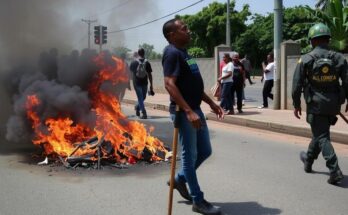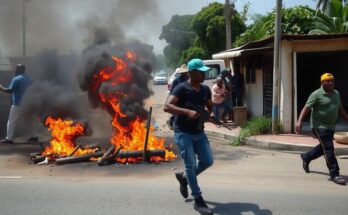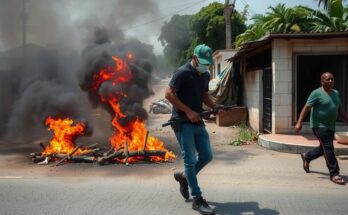The 2024 elections in Southern Africa reflect diverse paths toward political renewal. South Africa’s coalition government illustrates a shift against traditional parties, while Botswana experiences opposition victory amid economic grievances. Mozambique continues with Frelimo’s controversial rule despite demands for change, and Namibia reaffirms SWAPO’s dominance in a shifting political landscape. The patterns observed highlight growing public dissatisfaction with established parties and call for urgent reforms.
The electoral outcomes in Southern Africa for 2024 have illuminated the pressing issue of political renewal, revealing distinctive characteristics in each country’s political landscape. South Africa’s recent coalition government forms a stark contrast to the past dominance of liberation movements, suggesting a potential shift towards a post-liberation era. In Botswana, the longstanding Botswana Democratic Party (BDP) has faced electoral defeat amidst growing public discontent focused on economic mismanagement, while Mozambique’s electoral scenes have been marred by allegations of fraud and violence, with the ruling Frelimo party continuing to face opposition demands for change amid significant turmoil. Namibia’s recent elections highlight a resilient ruling party, the South West Africa People’s Organisation (SWAPO), in the face of rising demands for political change from younger demographics. Overall, these elections emphasize an evolving political landscape where former liberation movements struggle to address contemporary issues such as economic disparity and corruption, signaling the urgency for political reformation across the region.
Southern Africa’s political history has been shaped significantly by liberation movements that fought against colonial and apartheid regimes. These movements, while initially lauded for their roles in achieving independence, have faced growing discontent from electorates dissatisfied with stagnating economic conditions and increasing corruption. The recent electoral cycles in countries like South Africa, Botswana, Mozambique, and Namibia reflect a critical juncture where voters, particularly younger and urban populations, are prioritizing political accountability and effective governance over traditional allegiance to historical parties.
The electoral developments in Southern Africa underscore a critical demand for change, as electorates express frustration with the failure of long-standing liberation movements to address pressing socio-economic issues. The shift towards coalition governments and the emergence of new political parties signify a potential break from the past, illustrating that ruling parties must reevaluate their strategies to remain relevant in a rapidly changing political environment. As the younger voter base gains prominence, the prospects for political renewal are increasingly tied to leaders’ ability to deliver on promises of economic and social improvements.
Original Source: www.fairobserver.com




